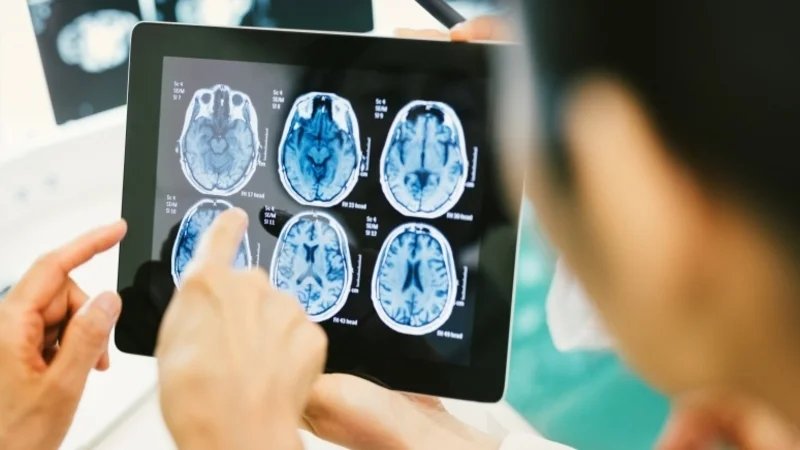Lumosa Therapeutics and CHI Memorial initiate a new Acute Stroke Study in Taiwan
02 February 2024 | Friday | News

Image Source : Public Domain
Stroke, a leading cause of adult disability globally, hits particularly hard in Chattanooga, Tenn., an area known as the "Stroke Belt," with one of the highest incidences of stroke in the nation. LT3001 aims to extend the critical treatment time window to 24 hours, offering the potential to transform outcomes for countless stroke patients.
Unlike the current U.S. FDA-approved drug, tissue plasminogen activator (t-PA), which must be administered within 4.5 hours after onset of stroke symptoms, Lumosa's LT3001 breaks down clots while also protecting delicate nerve tissues in the brain. This novel approach greatly extends the stroke treatment window to 24 hours, allowing potential treatment for many more stroke victims. Lumosa and CHI Memorial aim to redefine what is possible in preventing stroke disability and impairment.
Addressing a Critical Unmet Need
CHI Memorial, home to Chattanooga Center for Neurologic Research, LLC (CCNR), serves as the coordinating center for all Lumosa stroke studies in the United States. Thomas Devlin, MD, PhD, who is the medical director of the CHI Memorial Neuroscience Institute, acts as the international principal investigator for both the Lumosa 203 and BRIGHT Phase 2b randomized placebo-controlled, double-blinded trials. These trials focus on two patient populations: those undergoing mechanical thrombectomy (203 study, NCT05198323) and those who do not (BRIGHT study, NCT05403866). Both trials address the critical unmet need for more effective stroke treatment.
With more than 795,000 strokes annually in the U.S., LT3001's 24-hour treatment window could be a game-changer, especially for patients in rural areas and those with limited access to immediate care. One of the only two treatments, the mechanical thrombectomy surgery alone for large vessel occlusion stroke, is effective in less than 50% of patients. The other one, t-PA, with the strict 4.5-hour time window, limits the treatment to only about 12 percent of stroke victims nationally. LT3001's combined clot-dissolving and neuroprotective effects offer hope for significantly improved outcomes. LT3001 can be administered within 24 hours after stroke onset for smaller, medium, or larger strokes, in both large and smaller rural hospital emergency departments, greatly expanding access and reaching more patients within a broader timeframe.
In December 2023, CHI Memorial achieved a significant milestone by enrolling the first U.S. patient in the Lumosa 203, double-blinded stroke study. Lumosa's 203 and BRIGHT trials are anticipated to be completed in a year or two. For study 203, Lumosa has partnered with 10 medical centers in the U.S., with CHI Memorial being the only one in Tennessee.
This groundbreaking initiative aims to redefine stroke treatment possibilities, offering new hope to individuals and families affected by this debilitating condition. Lumosa and CHI Memorial are committed to advancing medical innovation and improving the lives of stroke patients worldwide.
Most Read
- How Does GLP-1 Work?
- Innovations In Magnetic Resonance Imaging Introduced By United Imaging
- Management of Relapsed/Refractory Multiple Myeloma
- 2025 Drug Approvals, Decoded: What Every Biopharma Leader Needs to Know
- BioPharma Manufacturing Resilience: Lessons From Capacity Expansion and Supply Chain Resets from 2025
- APAC Biopharma Review 2025: Innovation, Investment, and Influence on the Global Stage
- Top 25 Biotech Innovations Redefining Health And Planet In 2025
- The New AI Gold Rush: Western Pharma’s Billion-Dollar Bet on Chinese Biotech
- Single-Use Systems Are Rewiring Biopharma Manufacturing
- The State of Biotech and Life Science Jobs in Asia Pacific – 2025
- Asia-Pacific Leads the Charge: Latest Global BioSupplier Technologies of 2025
- Invisible Threats, Visible Risks: How the Nitrosamine Crisis Reshaped Asia’s Pharmaceutical Quality Landscape
Bio Jobs
- Sanofi Turns The Page As Belén Garijo Steps In And Paul Hudson Steps Out
- Global Survey Reveals Nearly 40% of Employees Facing Fertility Challenges Consider Leaving Their Jobs
- BioMed X and AbbVie Begin Global Search for Bold Neuroscience Talent To Decode the Biology of Anhedonia
- Thermo Fisher Expands Bengaluru R&D Centre to Advance Antibody Innovation and Strengthen India’s Life Sciences Ecosystem
- Accord Plasma (Intas Group) Acquires Prothya Biosolutions to Expand Global Plasma Capabilities
- ACG Announces $200 Million Investment to Establish First U.S. Capsule Manufacturing Facility in Atlanta
- AstraZeneca Invests $4.5 Billion to Build Advanced Manufacturing Facility in Virginia, Expanding U.S. Medicine Production
News











